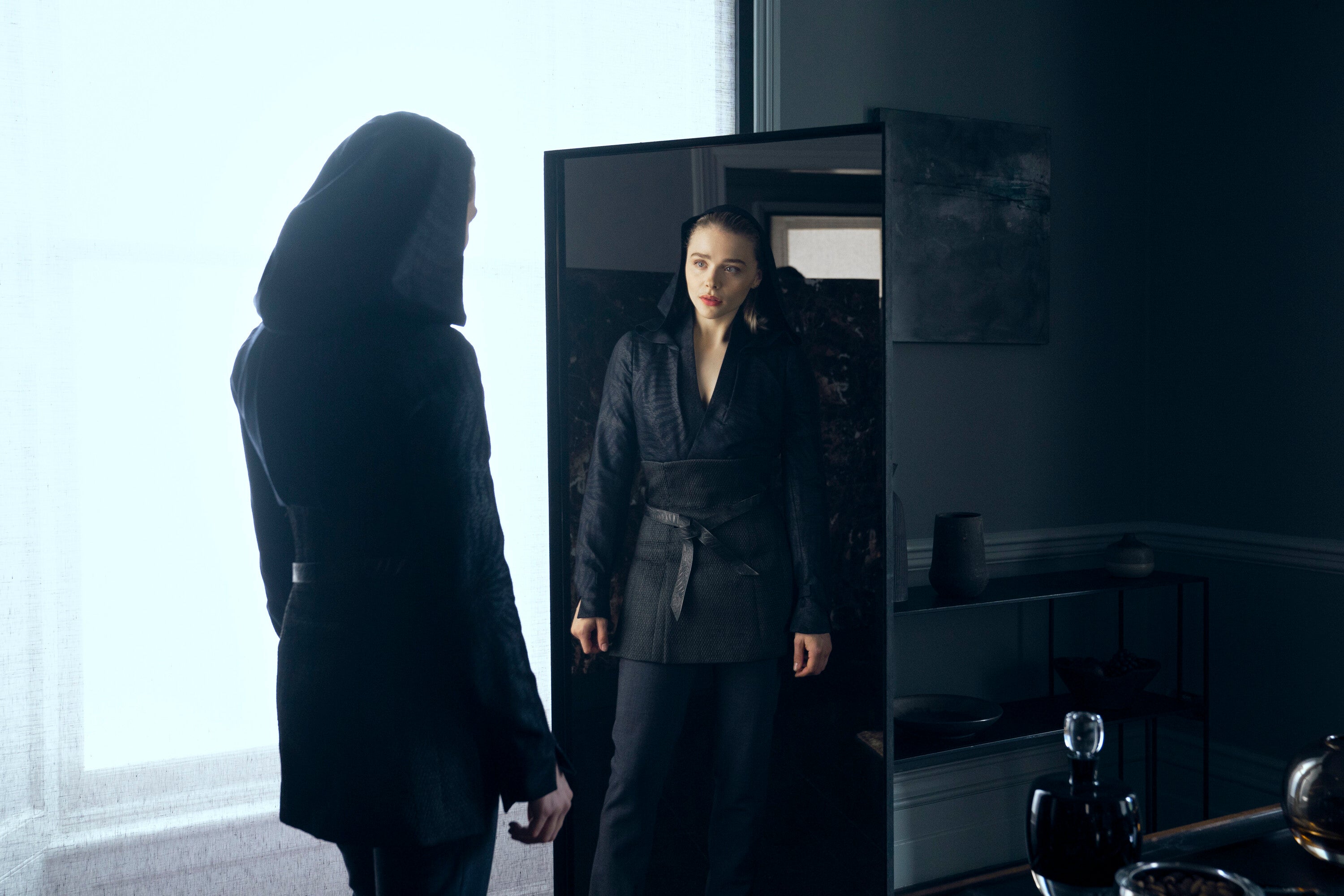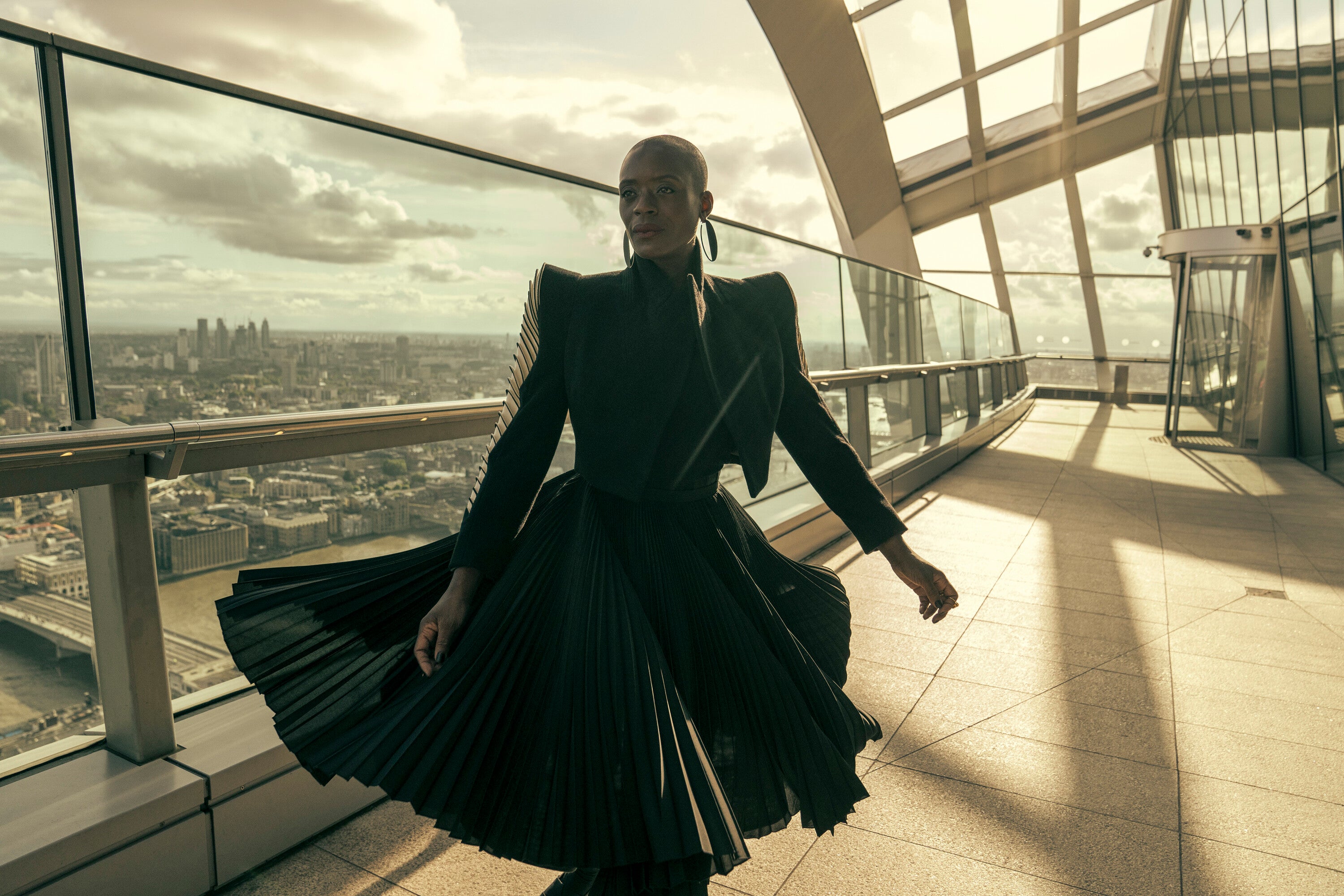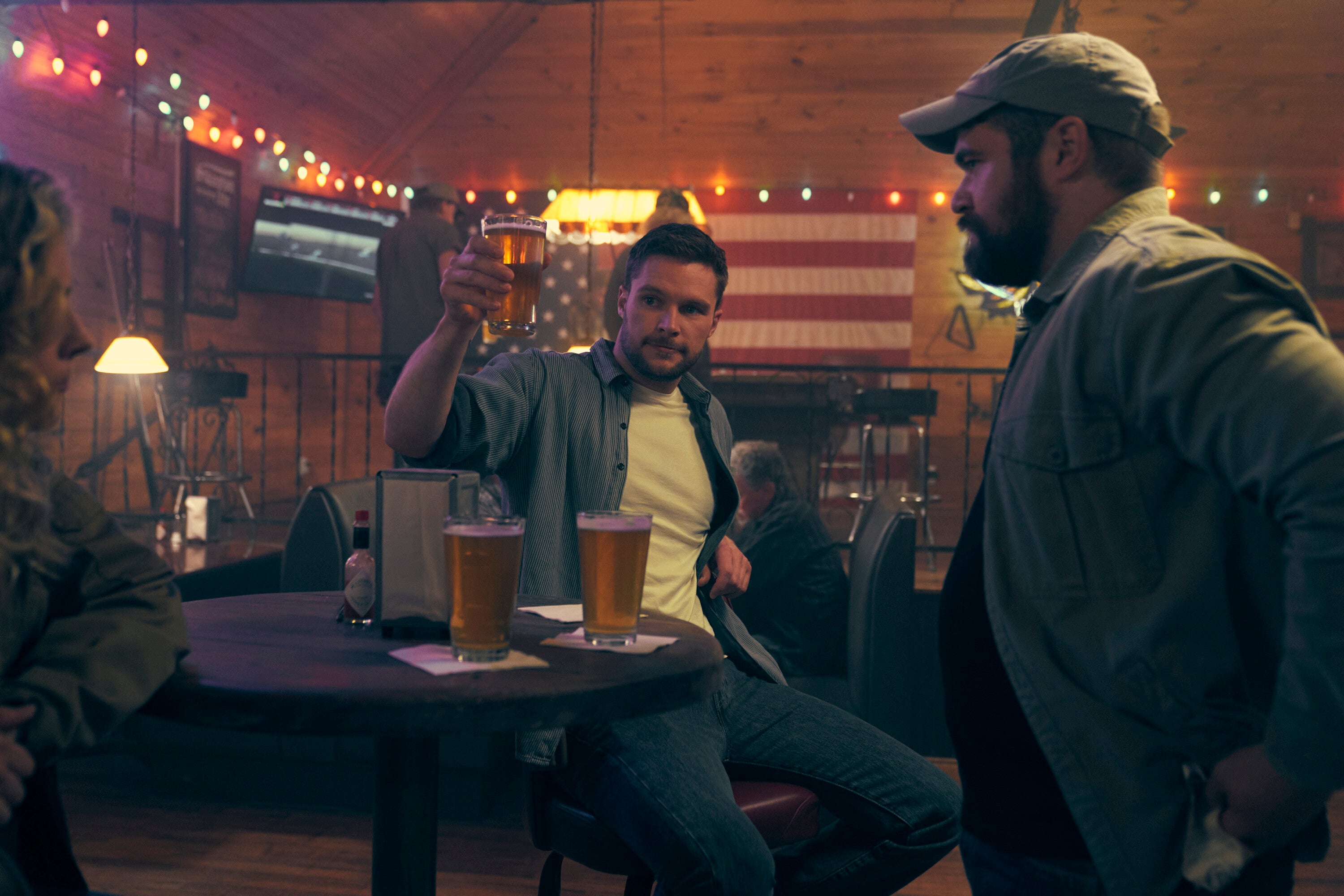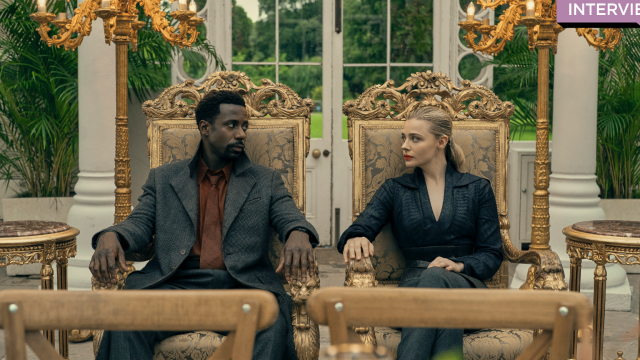Prime Video’s new William Gibson adaptation, The Peripheral, is produced by Westworld’s Lisa Joy and Jonathan Nolan and follows the high-stakes, high-tech tale of a young woman (Chloë Grace Moretz) who realises the virtual world she’s been visiting in a video game is actually the future — a very bleak future, with a murder mystery entwined within it.
It’s a thought-provoking series with multi-layered themes, as you might expect from the source material, with a lot to say not just about the far-flung future, but the near future too. The eight-episode series just dropped its first episode today, and Gizmodo got a chance to talk with series creator and executive producer Scott Smith (A Simple Plan, The Ruins) over video chat to learn more. What follows is an edited and slightly condensed version of our conversation.
Cheryl Eddy, Gizmodo: The Peripheral introduces this complex world that, at times, even the characters who are pulling the strings don’t even fully understand. At one point someone even says, “It can be rather confusing even for us.” What approach did you take in trying to translate that to the screen so the audience wouldn’t be left feeling the same?
Scott Smith: A lot of long Zoom sessions were involved [laughs]. I think one thing I’ve always loved about Gibson’s work is that it’s not very accessible, and he draws on the reader’s intelligence to build the world. You have to watch how the characters use the terms and you gradually pick it up through that. We wanted that to be similar to the viewing experience — but at the same time, we knew that we couldn’t go too far with that without people just giving up in confusion. So we were trying to walk that line always. And I think my instinct was to lean toward being more confusing and trusting that someone from Kilter [Films] or Amazon [Studios] would speak up and pull me back. I have a certain tolerance for, as a viewer, for a level of confusion, and to respect in other viewers.
Gizmodo: In that respect, the show it most reminded me of was Westworld, appropriately enough. That was a series where I re-watched episodes and had to rewind sometimes, to make sure I knew what was going on.
Smith: Yeah, I’ve shared that experience.

Gizmodo: So that’s good, that you have confidence in the audience being able to to keep up. What initially drew you to the William Gibson novel and what made you want to translate it to the screen?
Smith: Really, the characters — specifically, probably the world of Clanton, which from what I’ve heard is somewhat drawing on William Gibson’s childhood in the South. And you could feel that kind of warmth, the love between the brother and sister; you don’t often see that type of brother-sister relationship in film, TV, or books. It’s so present in the book, and we worked really hard to make it present in the script and then got really lucky with Jack [Reynor, who plays Burton] and Chloë [Grace Moretz, who plays Flynne], who just had this immediate on- and off-screen chemistry. They were like this tight little unit on set. That was always what drew me along with — in terms of the future world — the noir element. I’ve always been drawn to noir stories.
Gizmodo: It does have that mystery element, where we’re figuring out all these puzzle pieces right along with Flynne most of the time. How did you approach that aspect of the story from a pacing standpoint?
Smith: It was a challenge, partly because of my utter ignorance of writing for TV. I came from the indie film world and I’ve written some fiction, but my reflexes are to pile on the story, and I realised quickly that… I basically was told to kind of slow my roll. And it’s still a learning process. You have to service all these characters and build them and give them heft and gravity and relationships, and it kind of pushes plot down the road.
Gizmodo: Was eight episodes your decision or what that something you were given to sort of fit the story into?
Smith: That was the network. I think at one point, it was discussed about it being 10. But ultimately, Amazon, I think, decided on eight.
Gizmodo: The show encompasses a variety of themes; obviously there is a big emphasis on technology but also how important human relationships are. You touched on this a bit earlier, but why do you think it’s important for a sci-fi story like this to also have such human elements to it?
Smith: For me, that’s what makes it interesting and accessible. I think that’s Gibson’s — you know, as much as his prescience, and cyberpunk, and all the stuff that he opened the door to, he also ushered in to some degree a new kind of regeneration with science fiction with his writing, by bringing that naturalistic, realistic writing and creating characters, in addition to the sci-fi worldbuilding.

Gizmodo: The Peripheral shows us two worlds (North Carolina in 2032; London in 2099). What was your visual approach to creating each setting, and what stylistic choices did you make to contrast the past and present?
Speaker 1: A lot of that was Vincenzo Natali, one of our directors, [and was in] the book, and [also the input of producers] Lisa [Joy] and Jonah [Nolan]. I think that we always felt that Clanton should be warm, with the feel of sunlight, and that London should be darker — not just emotionally, but even just an ambient sense. We also didn’t want to do the South as this utterly depressing wasteland; people made their lives there, and they were happy there. And that was really important to us.
Gizmodo: I haven’t read the book yet unfortunately, but I get the sense that your take on The Peripheral is pretty similar, although there are some key divergences that you made. How did you decide to branch off in certain places, and what was important to you to keep in the story?
Smith: We knew that there had to be a central driving mystery, so we shifted that a little bit and refined that the things that — again, I keep saying the same thing, but the the relationships, the Clanton world, were definitely important for us to to keep. Pulling Flynne toward the centre, making her sort of the proxy for the viewer and the doorway into into the world — it’s there in the book, but we knew that had to be heightened to some degree.
Gizmodo: Chloë’s performance really holds the centre together. In casting did you know right away that she was the perfect Flynne?
Smith: When we found out that she was interested, we were ecstatic. She did her own fights! There was some stuff — flipping-type stuff, where they would bring in [a stuntperson]. But a lot of it was was Chloë. Also, she is from the South; she would fine-tune everyone’s accent and missteps with the dialect. She’s kind of the smartest person on set at any given moment, and she’s had [tons of] experience. She’d been [acting] since she was a kid. She got Flynne, she identified with Flynne and — I don’t remember how many days of shooting, over 100, 117 or something. And she was there for almost every one. So it’s incredible.

Gizmodo: Alternate realities and multiverses have never been more popular in the sci-fi entertainment realm. Why do you think that particular story hook is so resonant with audiences today and how does your series stand apart from the others?
Smith: I mean, Jonah talks a lot about this. Gibson’s take on time travel and the “stubs” [divergent timelines], the way that contact is made through this, and [the idea that] what travels is data. That was the kind of the ball that we took from him and went running with. As to why [these stories are popular nowadays], I guess because — even something like Zoom, the fact that we’re we’re interacting like this — we can do this, and VR, and AR. It’s a time right now where I think those questions are just everyday on some level.
Gizmodo: What video games do you enjoy, and would you ever want to step into a VR world like the one in The Peripheral?
Smith: I definitely would [visit a VR world]. But I am so disappointingly not a gamer, so I apologise. The funny thing is, we had a military advisor, Jason Emery, who is a former Green Beret. That’s why we brought him in. But he’s a huge gamer. So we ended up using him more as a resource for the gaming knowledge and for pop culture references than for the military stuff.
Gizmodo: And is this a one and done season, or are you hoping for more?
Smith: We’re hoping, yeah. The story could continue.
New episodes of The Peripheral drop Thursdays on Prime Video.
Want more Gizmodo news? Check out when to expect the latest Marvel and Star Wars releases, what’s next for the DC Universe on film and TV, and everything you need to know about House of the Dragon and Lord of the Rings: The Rings of Power.
